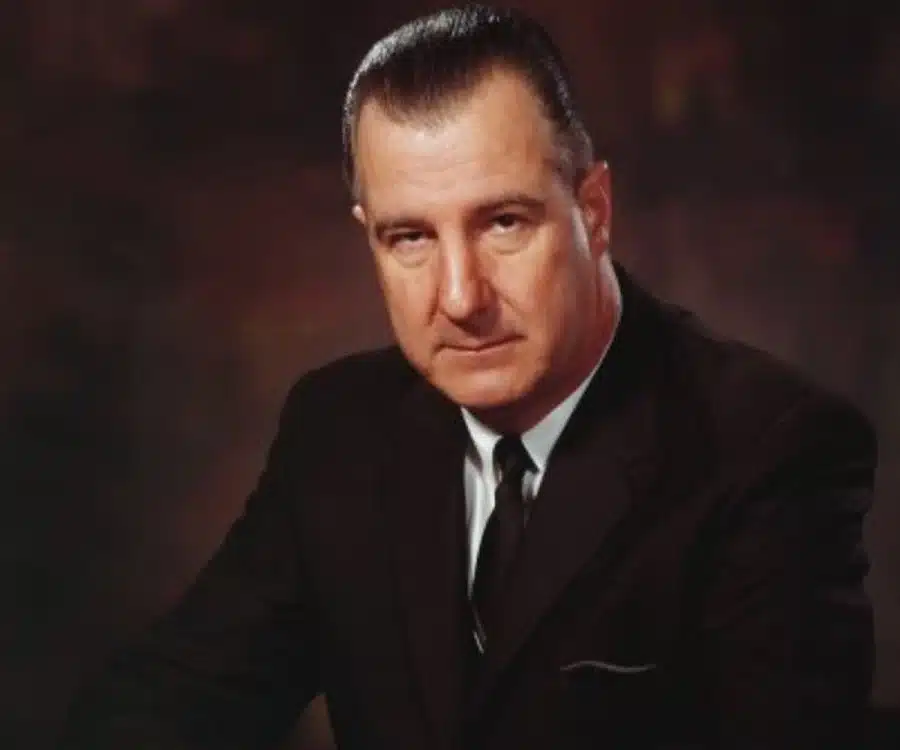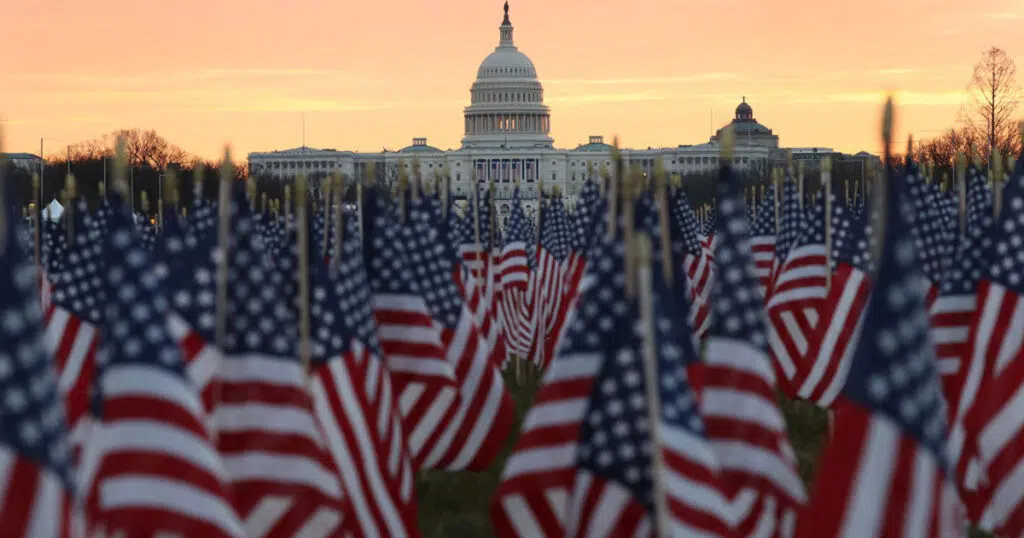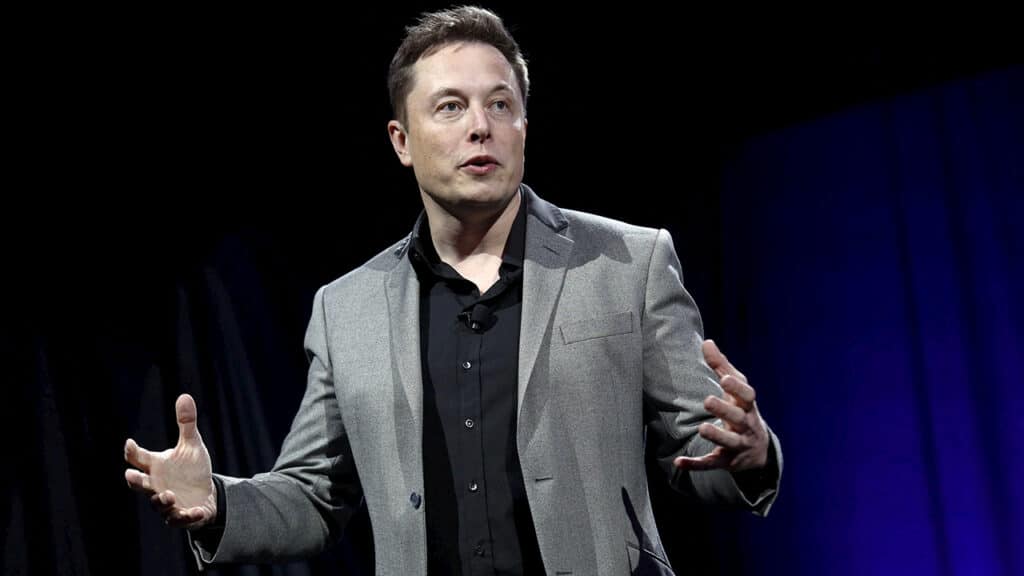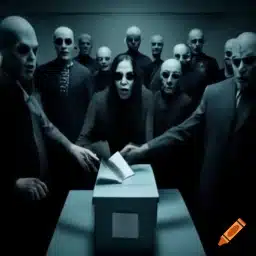
Spiro Agnew Warned Us, but We Didn’t Listen
The leftist movement is a carnivorous beast, and its objective is to shape the national narrative as part of a comprehensive effort to further leftist authoritarian goals. They have infiltrated every foundational American institution, including government, academia, healthcare, non-profits, corporations, and, of course, the media.
In the future, we’ll explore the corruption of the other institutions, but today, let’s take a look at the mainstream media and take a deep dive into a squandered opportunity that could have throttled the left’s propaganda monster in its infancy.
Spiro T. Agnew Steps Out from Obscurity
Spiro T. Agnew was a relatively unknown and unremarkable governor from Maryland before he was selected by Richard Nixon as his running mate in 1969. Agnew’s background was actually quite progressive, and during his tenure as Baltimore County Executive (similar to a mayor), Agnew was responsible for building new schools, increasing teacher’s salaries and desegregating restaurants.
So, considering he was a moderate Republican from a liberal state, the media was generally okay with him. In fact, through the first few months of his term, Agnew was hardly seen or covered. His speaking voice was a kind of droning monotone, and the mass news media, which was increasingly turning to television, didn’t find him telegenic or interesting, so he was mostly ignored.
That is until Agnew made a decision that ultimately led to his undoing.
In 1969, Agnew called out the emerging leftist media, which was emboldened by the Vietnam war and had begun flexing its adversarial journalistic muscle. In a Midwest Republican Party gathering, Agnew claimed the media was biased and unfair in its appraisal of a major speech President Richard M Nixon had recently given related to the war effort. Agnew criticized the press for belittling Nixon and attempting to discredit the speech.
“When the President completed his address — an address, incidentally, that he spent weeks in the preparation of — his words and policies were subjected to instant analysis and querulous criticism. The audience of 70 million Americans gathered to hear the President of the United States was inherited by a small band of network commentators and self-appointed analysts, the majority of whom expressed in one way or another their hostility to what he had to say.
“Networks, which are few in number have a virtual monopoly of the whole medium of communication. The newspapers of mass circulation have no monopoly on the medium of print. Now, a virtual monopoly of the whole medium of communication is not something that democratic people should widely ignore, and we are not gonna cut off our television sets and listen to the phonograph, just because the airways belong to the networks. They don’t. They belong to the people.”
Agnew’s speech struck a chord with the American public, who had become increasingly uneasy with the media’s unremitting move away from neutral journalism to more partisan left-leaning commentary. Almost overnight, Agnew was transformed from just another invisible vice president into a hero of the conservative movement.
For his part, Nixon said Agnew’s speech was a “turning point” in his presidency. Shortly thereafter, the switchboards at the White House lit up and telegrams began arriving in bulk as average Americans expressed their appreciation for Agnew’s long overdue critique of the modern and expanding mass media apparatus.
The Empire Strikes Back
Caught off-guard, and incensed that Agnew had the nerve to challenge their supremacy in affecting public sentiment, the media quickly responded. NBC’s President Julian Goodman called Agnew’s speech, “an appeal to prejudice.” CBS President Frank Stanton accused Agnew of trying to “intimidate a news medium which depends for its existence upon government licenses.”
Basking in the limelight, Agnew recognized his new found popularity and looked to capitalize. He stepped up his criticism of the media, especially television news, and became a household name in the process. After the 1972 landslide election for Nixon, inside the Republican base, it was widely believed Agnew would be the party’s nominee for president in 1976.
And then something unexpected happened. Well, maybe not by today’s standards, but in the summer of 1973, the Department of Justice announced it had initiated an investigation into the activities of Spiro Agnew when he was governor of Maryland.
Hmmm… Sound familiar?
Agnew was charged with a number of crimes, including 39 counts of receiving bribes from contractors looking to do business with the state, as well as extortion, conspiracy to conceal the transactions and tax fraud.
Throughout the investigation, Agnew vigorously maintained his innocence and argued that the payments were unreported campaign contributions. He was adamant that the charges were purely political, telling Nixon that “it wasn’t shakedown stuff, it was merely going back to get support from those who had benefited from the administration.” In essence, he believed U.S. prosecutors had searched for a crime until they found one.
Sound familiar?
As the feeding frenzy in the media and among Agnew’s enemies escalated, the vice president rallied his supporters at a speech in Los Angeles in September 1973.
“I say this to you: the conduct of high individuals in the Department of Justice– particularly the conduct of the Chief of the Criminal Investigation Division of that department– is unprofessional and malicious and outrageous. If I am to believe what has been printed in the news magazines and said on the television networks of this country, and I have had no denial that is the case. People will say to me, ‘Why? You don’t make sense. Why should a Republican Department of Justice and a Republican prosecutor attempt to get you?’ Well, I don’t know all the answers, but I would say this: that individuals in the upper professional echelons of the Department of Justice have been severely stung by their ineptness in the prosecution of the Watergate case… and they are trying to recoup their reputation at my expense, I’m a big trophy!
“I want to make another thing so clear that it cannot be mistaken in the future: because of these tactics which have been employed against me, because small and fearful men have been frightened into furnishing evidence against me, they have perjured themselves in many cases it’s my understanding, I will not resign if indicted, I will not resign if indicted!”
It was argued at the time that Agnew’s investigation was non-partisan since the head of the DOJ (Elliot Richardson) and the U.S. Attorney for Maryland (George Beall) were both Republicans. You know, kind of like Mitt Romney and Liz Cheney are Republicans. That said, to this day, there is still very little known about the lawyers that actually investigated the case out of the U.S. Attorney’s Maryland office. The political affiliations of Tim Baker, Barney Skolnik and Ron Liebman, the lead counsel, remain a mystery. Even the party affiliation of John J. O’Connor, the Chief of the Criminal Investigation unit at the DOJ, who so incensed Agnew, escaped the type of scrutiny that would be routine in modern politics. Later, it was revealed that Liebman worked on the Edmund Muskie campaign during Muskie’s failed presidential effort in 1968.
Ultimately, the DOJ knew they had him, and with relentless negative media coverage, Agnew was forced to resign in October 1973 after agreeing to plead guilty to one charge of “knowingly and willingly” evading $9,551.47 in federal taxes on $29,500 in undeclared income. He received a fine of $10,000 and ended up paying $160,000 in back taxes through a variety of civil actions.
It is impossible to know if there were any nefarious motivations behind the DOJ’s pursuit of the vice president, but it is fair to say that he made many enemies of very important people on the left and in some Republican circles. One thing is for certain: Once Agnew was out of the way, any intense criticism of the media’s obvious bias evaporated, and it was back to business as usual as the delivery of the news continued its relentless creep to the left. It took four decades until someone with a bully pulpit showed up and called out the media’s bias with the same vociferous intensity as Agnew.
We all know who that guy is, and what has happened to him as a result.
Agnew Foreshadowed the Future
Historically, when we look back at Spiro Agnew’s vice presidency, it’s impossible to ignore the parallels between 1973 and 2024. When he was a nondescript, non-threatening vice president in the shadows, Agnew was largely ignored. However, when he stepped out and exposed the media as a leftwing tool that threatened free speech, the Bill of Rights and the concept of democracy, he suddenly found himself buried under an avalanche of federal charges from which there was no escape. Agnew may have had the voice, but he didn’t have the money to fight the federal government.
The Agnew story becomes intriguing when we compare it to Donald Trump’s treatment after he began to challenge the “fake news.” Taking into account we know Trump is innocent while Agnew might have been guilty as sin, the circumstances and similarity in how they were hounded, besmirched and prosecuted by federal law enforcement is chilling.
In fairness, the American public was extremely naïve in 1973. I don’t think it occurred to many citizens that Agnew could have been selectively prosecuted simply because he had become such a huge thorn in the side of the emerging Deep State media complex. As we are now painfully aware, the Biden family constructed intricate bribery, money laundering and influence peddling schemes over decades designed to extort money from businesses and countries (allegedly). In contrast, Agnew’s clumsy and easily traceable direct payoffs reveal a man who was either not nearly as astute as he appeared or was set up as he claimed. I mean seriously, wouldn’t it have occurred to him to at least make some effort to hide his paper trail? Maybe take the bribery payments through a shell corporation, his brother or a friend? Even Joe Biden figured that part out.
I guess we’ll never know.
The larger point was that we had an opportunity to permanently stifle the leftist media industrial complex, and with Agnew’s indictment and resignation, the moment passed. The lesson is always the same: The longer the left is appeased, the more serious the problem becomes. If you represent a serious challenge to their authoritarian objectives, prepare for indictments, financial ruin and destruction of your reputation.
You know, pretty much the same thing that happens in totalitarian countries run by the state.



